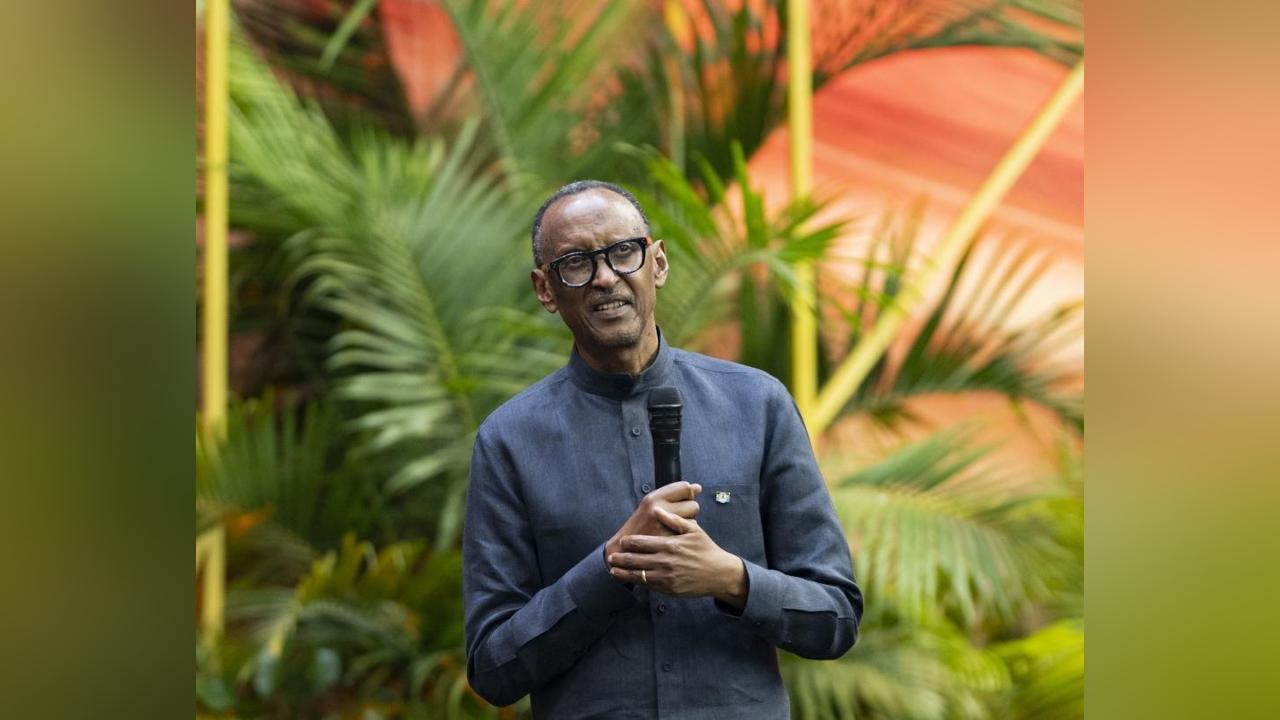Africa-Press – Rwanda. President Paul Kagame has explained why the national budget has increased, despite his earlier call for spending restraint.
This was on July 4 as he spoke to senior editors and international correspondents during a media interaction marking the 31st anniversary of Rwanda’s Liberation.
In March, Kagame urged Rwandans to “kufunga mkanda”—a Swahili phrase meaning to the tighten belt, or cut back on spending—in response to potential funding cuts from some international partners over Rwanda’s alleged support for the AFC/M23 rebel group in DR Congo. Rwanda denies these allegations.
“Kufunga mkanda means using limited resources wisely,” Kagame said, pointing out that it’s about cutting non-essential spending and reallocating funds to critical priorities.
Despite the earlier caution, the government plans to spend over Rwf7 trillion in the 2025/26 fiscal year – an increase of Rwf1.2 trillion or 21 per cent from the Rwf5.8 trillion allocated in 2024/25.
Kagame said the increase reflects urgent national priorities and the ability to mobilise new funding sources.
“The budget rise doesn’t contradict the principle of efficiency. It means we identified new needs and found ways to finance them,” he said.
The Ministry of Finance and Economic Planning (MINECOFIN) explained that the larger budget aims to support recovery from recent crises—including the Covid-19 pandemic, inflation, the 2023 floods, and the 2024 Marburg outbreak—while funding major and strategic projects such as the new international airport in Bugesera and RwandAir’s expansion.
It also includes allocations for the implementation of pension reforms that took effect in January 2025, which doubled employee contributions from 6 per cent of basic salary to 12 per cent of gross salary. This means the government must increase its contributions for public servants accordingly.
Kagame stated that while some donors suspended funding, Rwanda sought alternatives to close the gap.
“We explored areas where we weren’t collecting revenue. We also couldn’t abandon vital projects,” he said, adding that some suspended funds from donors were later reinstated “maybe” after knowing the truth about the DR Congo issue.
Domestic and external financing
According to the budget law, domestic revenues are projected to reach Rwf4.29 trillion—about 61 per cent of Rwanda’s total budget for the current fiscal year—marking a 16 per cent increase from the previous fiscal year.
This includes Rwf3.6 trillion in tax revenue, up 23 per cent from 2024/25, and Rwf477.2 billion from other revenue sources.
Over Rwf2.7 trillion of the budget is expected to come from external sources—Rwf585.2 billion in grants and more than Rwf2.1 trillion in loans. Compared to the 2024/25 budget, external loans are projected to increase by Rwf648.4 billion, while grants are expected to drop by 5.7 per cent from Rwf621.2 billion.
The ministry of finance attributed the rise in domestic revenue to stronger economic performance, recent tax policy reforms, and ongoing efforts under the medium-term revenue strategy.
For More News And Analysis About Rwanda Follow Africa-Press






